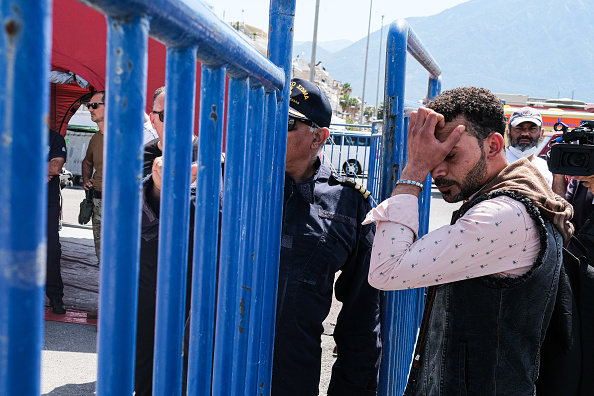The EU and its member states must conduct a full investigation into the recent deadly shipwreck off the coast of Greece, the International Rescue Committee (IRC) has said.
The IRC said the overloaded fishing boat likely claimed the lives of more than 500 people when it capsized and sank in the Ionian Sea on 14 June.
The exact death toll from the disaster remains uncertain, with hundreds of individuals still missing.
Many women and children were among the up to 750 people on the boat, mainly from Pakistan, Syria and Egypt.
Survivors alleged the Greek coastguard caused the tragedy, claiming that the boat capsized while being towed. But the Greek coastguard denied it was pulling the boat when it capsized.
The IRC urged the EU to expand safe, regular routes for people on the move.
It said the EU should focus on keeping refugees safe during their journey to Europe instead of discouraging them. This means improving search and rescue efforts, giving vital information to people on the move, and respecting their legal rights.
Despite it being one of the deadliest shipwrecks on record in the Mediterranean Sea, there have been no moves to launch an investigation into the shipwreck. This despite calls to do so from NGOs and members of the European Parliament.
The IRC said it is concerned that disasters like this are “becoming increasingly normalised.”
In the month since the disaster, there have been at least 22 more incidents in the Central Mediterranean, with over 50 people dead or missing, according to the International Organization for Migration.
Access to safe routes
“It’s deeply shameful that hundreds have perished in one of the deadliest ever shipwrecks in the Mediterranean Sea, yet – a month on – we have yet to see a full, transparent investigation into the incident,” said Harlem Desir, IRC Senior Vice President, Europe.
“It’s time for concrete steps towards accountability, and to finally put an end to these needless and avoidable deaths.
“Rather than focusing on stopping people from reaching its territory, we urge the EU to shift its efforts towards improving rights and conditions for people on the move, better supporting state-led search and rescue operations, and expanding safe routes to Europe so people are not forced to risk their lives on these treacherous journeys in the first place.”
Last week, Yiva Johansson, the EU’s Home Affairs Commissioner, said the EU is paving the way for stronger cooperation with partner countries to stop smuggling routes and increase legal pathways.
“It’s important with the information campaign and investment in legal pathways and information on how to access the legal pathways,” she said.
“So that has to go hand in hand, to give people other opportunities to come legally to the EU. Because many of those are actually searching for job opportunities — and we need labour migration in the EU.
“And we also need to prevent the smugglers of being able to sell these routes in the way they are doing it right now.”
Legal pathways are the safe way to the #EU
🌍 We are paving the way for stronger cooperation with partner countries to stop smuggling routes and increase legal pathways.
📹 Commissioner @YlvaJohansson ~ @EP_Justice #migrationEU pic.twitter.com/bGBKoTNOgF
— EU Home Affairs (@EUHomeAffairs) July 6, 2023
According to the UN’s displacement tracking matrix, over 2,000 have lost their lives or gone missing this year while attempting to reach Europe via the Mediterranean and the eastern Atlantic Ocean. These routes saw nearly 3,000 deaths or disappearances last year.


















